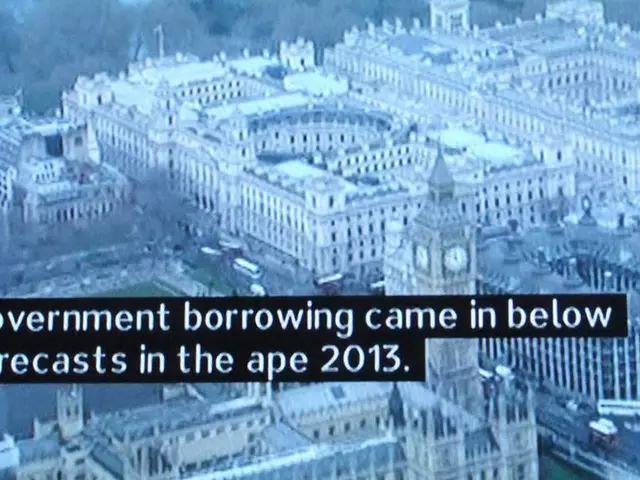World Wealth Standards in 2025: A Worldwide Examination of Earnings and Asset Thresholds for Affluence
Wealth, in today's world, is a complex concept that varies significantly across countries and individual perspectives. The World Bank classifies countries into low, lower-middle, upper-middle, and high-income groups based on Atlas GNI per capita, but the definition of wealth extends beyond these classifications.
In 2025, the global net worth benchmarks reflect a combination of total national wealth, concentrations of high-net-worth individuals, and subjective financial comfort levels. The richest countries by total net worth include the United States ($145.8 trillion), China ($84.5 trillion), Japan ($22.6 trillion), Germany ($17.4 trillion), and France ($16.0 trillion).
Within countries, wealth is heavily concentrated among millionaires and billionaires. The U.S. leads with the highest number of millionaires, followed by China, France, Japan, and Germany. Wealth inequality is amplified by factors such as historical economic strength, global mobility, and financial market influence.
The subjective definition of wealth has evolved over the years. According to the 2025 Schwab Modern Wealth Survey, the amount of money people consider defines "wealthy" has remained stable at around $2.5 million over the past five years, but the amount needed to feel "financially comfortable" has risen from $778,000 in 2024 to $839,000 in 2025. This discrepancy highlights that "wealth" is often an aspirational target, while "financial comfort" relates to real-world cost-of-living factors such as inflation, rising interest rates, healthcare costs, and future savings needs like retirement and social security.
Key factors influencing the definition of wealth across regions include economic conditions, wealth concentration dynamics, and cultural and aspirational perspectives. Economic conditions such as inflation, interest rates, healthcare, and cost of living significantly affect perceptions of wealth and financial comfort. The top 1% accumulating more private savings while the bottom 90% save less influences wealth distribution and economic inequality. Cultural and aspirational perspectives also play a role, with developed economies focusing on both financial assets and intangible aspects like financial security and comfort, while emerging economies might focus more on tangible asset accumulation and upward mobility.
Thus, in 2025, wealth is defined by a mix of absolute financial metrics (like national net worth and millionaire counts) and subjective personal benchmarks shaped by living costs and economic realities in different countries and regions. In North America and Western Europe, US$2.5-5M+ is needed to be considered wealthy, while in Asia-Pacific and MENA, US$500K-US$2M is sufficient. In Africa and Latin America, US$250K-US$1M often places someone in the top tier of wealth.
In conclusion, the concept of wealth continues to evolve, influenced by economic conditions, wealth concentration dynamics, and cultural and aspirational perspectives. To move from rich to wealthy, individuals might consider investing in real estate, index funds, ETFs, digital assets, starting a service-based business, or exploring tax-deferred investment vehicles. Understanding the unique factors that define wealth in different regions is crucial for individuals aiming to achieve financial security and comfort.
[1] The Net Worth of Countries in 2025 (Global Finance Magazine) [2] Schwab Modern Wealth Survey 2025 [3] Millionaire Population by Country in 2025 (Credit Suisse) [4] Wealth Inequality: A Global Perspective (World Inequality Database) [5] Billionaire Net Worths in 2025 (Forbes)
Read also:
- Managing Thermal Conditions in Organic Gardening Using Permaculture Techniques
- Dubai's JA Resorts & Hotels expands to the UK market through the acquisition of two historical properties in Scotland
- Electronic Display Systems Tailored for Accommodation Facilities
- Actor from 'Crazy Rich Asians' discusses his top travel tips and introduces his new venture-a travel rewards credit card.





